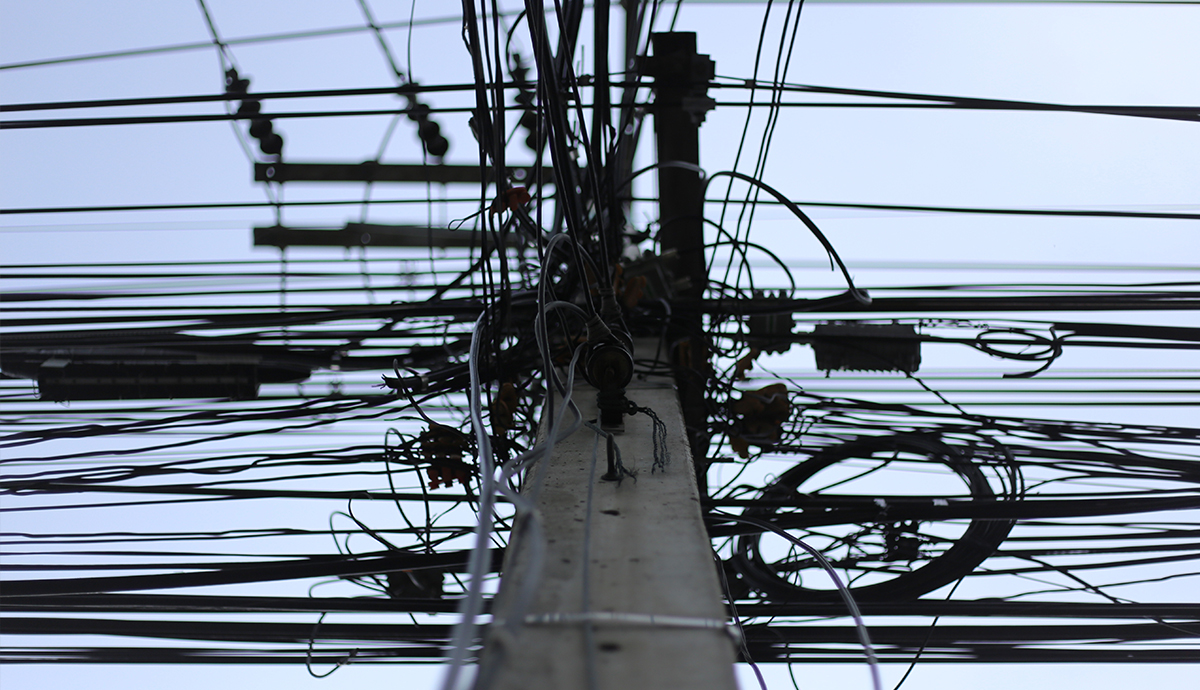On Writing “Electricity” from issue 297.4
I wrote “Electricity” while employed in the main office of Unity for the Homeless in New Orleans. I worked with a woman 20 years younger than myself who had worked with ACORN for most of her adult life and had been involved in running one of their community radio stations. Our conversations kicked up memories of my own time on the airwaves on a station in Washington, D.C. We’d talk around our desks, hers or mine, the other of us standing with papers in our hand, and when she gave me a lift in the evenings to Loyola University, where she either picked up her son from daycare or parked to attend an evening graduate school class. I walked home from there.
Unity was for me a post-Katrina job which lasted over four years, through the rebuilding and the resettling of New Orleans’ low-income families. It was, perhaps, a return to the more immediate feel of a movement, of people working together for a cause, although a far cry from the loosely-run collectives I’d experienced in the seventies—filled with unpaid idealists living on the cheap in D.C. Unity was (and is) an umbrella group, a collection of local agencies, some of which have ties to other, larger organizations, which come together and cooperate with local counterparts to best meet the local needs.
In 2010, our boss took half the summer off and I got to leave my dismal dark corner and relocate to her large sunny office. It was here, in between massive monthly reimbursement billings to the state for rental assistance checks, the details of my radio experience came back at me. In the expansiveness of this office I looked up the history of WGTB-FM on the Georgetown University campus and found the details on how it had been passed around the city after I’d left it in 1976—hidden, underground, in the basement of the old stone building called Healey Hall. And so began “Electricity.”
My Unity job ended in 2011. I’d started writing a novel about six months before and the in-between-jobs time gave me another six months of full-time effort to spend on it. I wrote and rewrote then, and for another six months after returning to work. Last fall I finally felt free of it, enough to turn my attention toward new projects. I’d begun research for a novel when my aunt died at the end of September 2011 and I traveled north to Philadelphia for the funeral. Aunt Jeanne had always been a source of inspiration to me and throughout last winter, after she’d passed, she was on my mind. It was in March of this year, our shared birthday month, that I abandoned plans for the novel and completely surprised myself by beginning a memoir of that time in my life depicted in “Electricity.”
Aunt Jeanne had told me once she’d always thought I should write about my time in the seventies when I lived for a year in the country, after I’d left D.C. I tried it, I’d answer. I got lost; it was too painful. She’d shake her head and say nothing. My first attempt was about twenty years ago. I’ve written a lot since then.
Well, try it again, she seemed to say this past winter, as her spirit rambled around more freely, unconfined.
“Electricity” gave me a voice with which to speak, a voice of a young woman more than capable of handling her own material. Aunt Jeanne felt she’d been there all along. I guess it was time for me to give this young woman a turn. I’d made her wait long enough.
Christine Murphey lives in New Orleans. Work has appeared in Negative Capability, New Orleans Review, Louisiana Literature, Michigan Quarterly Review and upcoming in New Laurel Review's "Train" issue. Christine's piece, "Electricity," is featured in issue 297.4.
Recommended
Nor’easter
Post-Op Appointment With My Father
Cedar Valley Youth Poet Laureate | Fall 2024 Workshop





